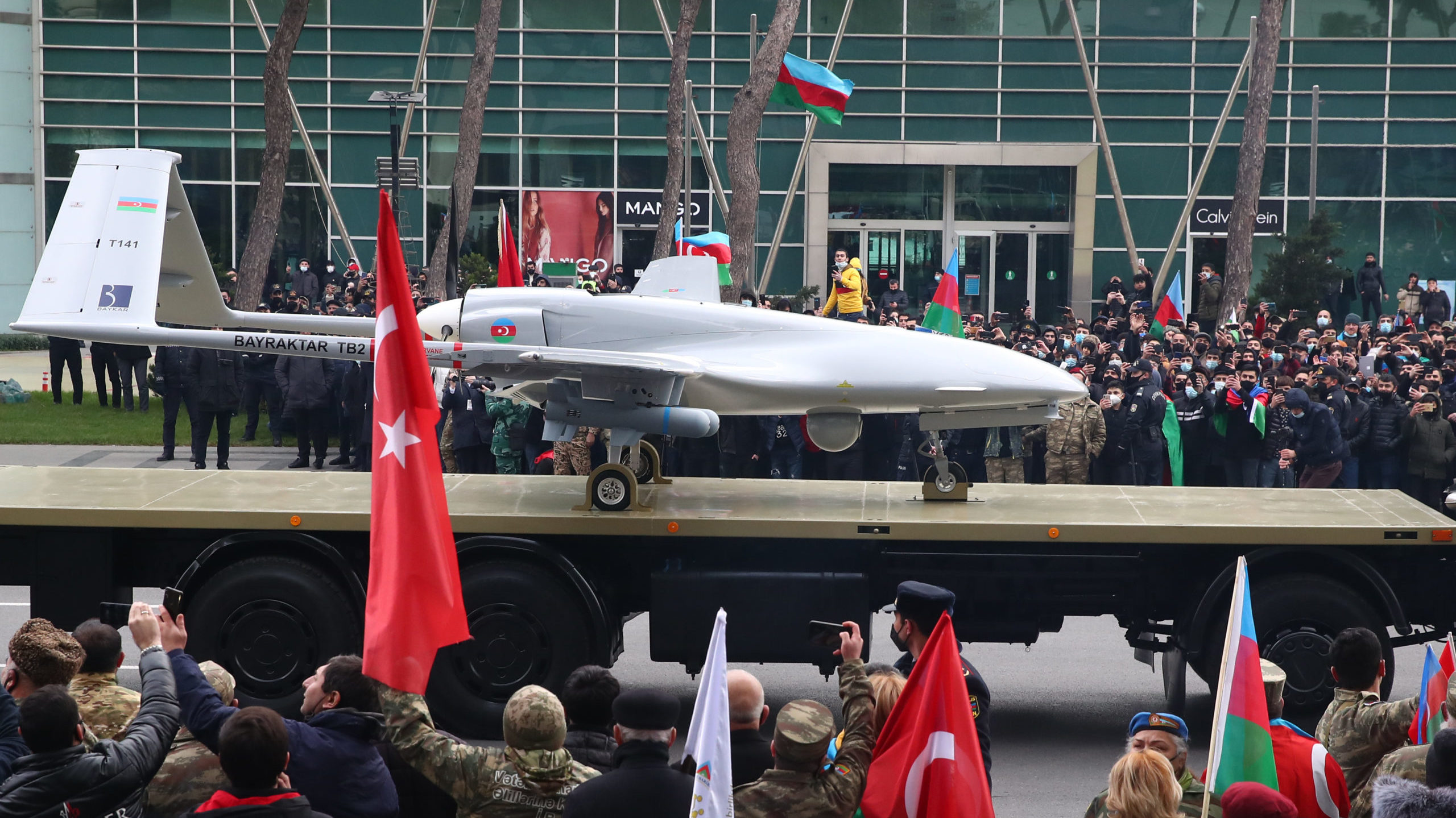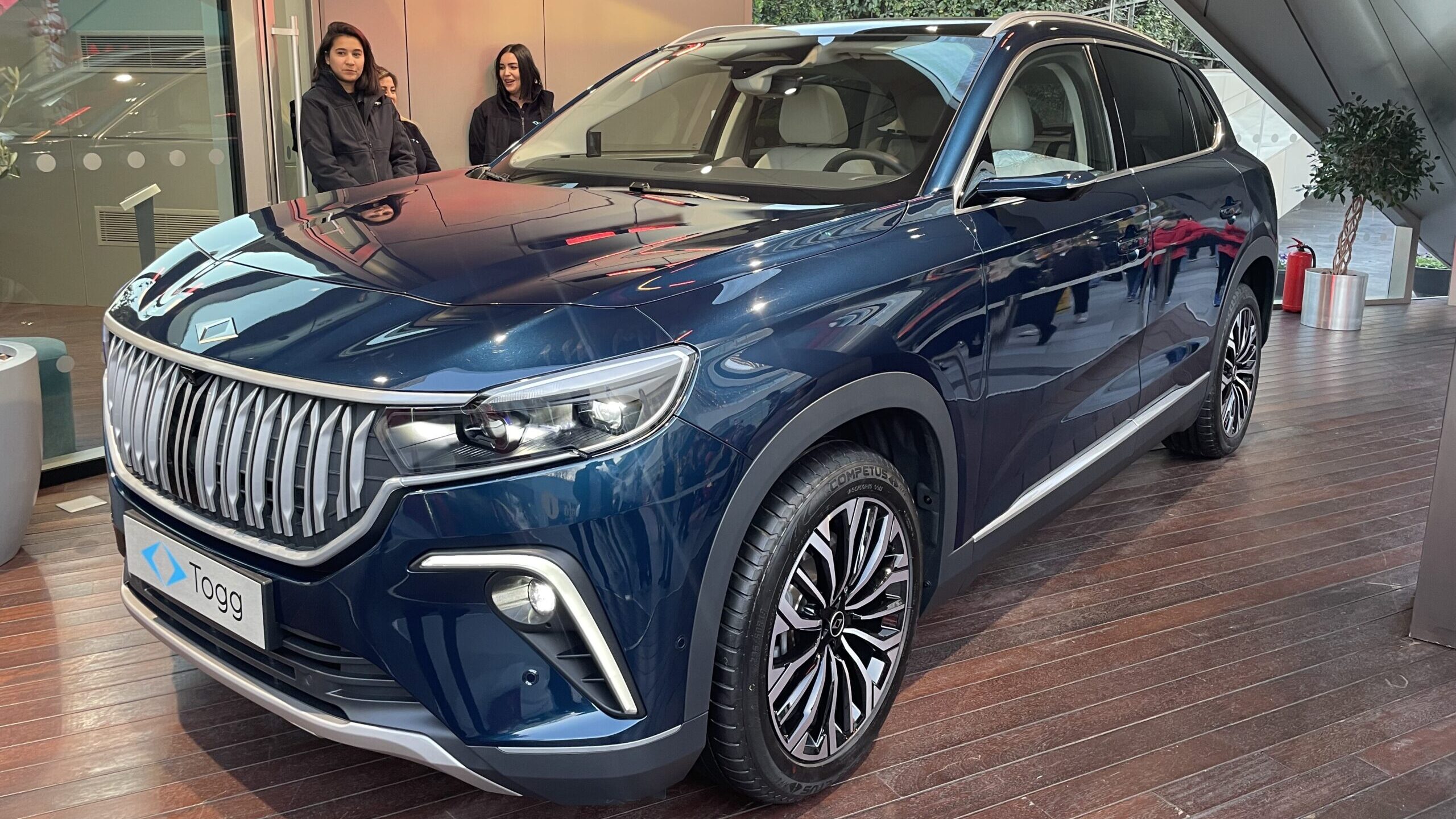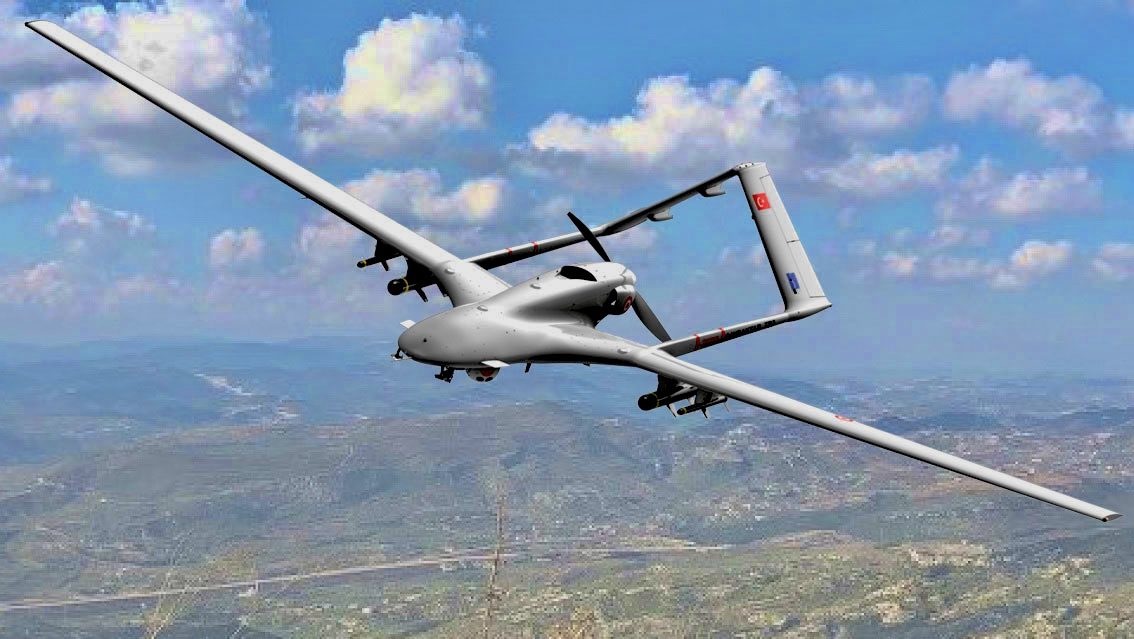With Successes in Ukraine, Turkey Making Huge Strides in Global Drone Industry
The country’s booming UAV sector is making it a drone superpower and one of the four top exporters of armed unmanned aerial vehicles; its most famous product, the Bayraktar, is credited with a major role in repelling Russian forces, and doz
In the year since Russia’s invasion of Ukraine, unmanned aerial vehicles (UAVs) have proved critical, giving Ukrainian forces the edge on the battlefield and stopping long Russian tank columns in their tracks.
In fact, Turkish UAVs have played such a key role in Ukraine’s counter offensives against Russia’s assault, with a success so astounding, that Ukrainian forces are singing their praises – literally.
One of the leading manufacturers of drones in Turkey is Bayrak Technology, a name that has become world renowned in the sector following stunning successes in Nagorno-Karabakh, Libya and Syria. That success has been now replicated in Ukraine’s war against Russia, making Turkey a global drone manufacturer and distributor.
Bayrak Technology sits on the northwestern edge of the Europe-facing part of Istanbul. Inside, is a minimalist yet spacious hall, adorned with sofas, armchairs and coffee tables, or rather, tea tables, for that is definitely the beverage most favored by Turks.
The state-of-the-art Bayrak headquarters are heavily guarded and extremely private, and who is allowed in is strictly controlled. A walk inside immediately leaves one making a comparison to Google or Facebook campuses in the US.
In the background, there are ping-pong tables, part of a relaxation zone where young people are strolling around. Young because the average age in a company employing nearly 3,000 people is 27 years. There is absolutely no indication that drones capable of carrying bombs are being developed in the adjacent building.
Turkish drones are “on the cutting edge of technology, and it’s been battle tested,” a company official told The Media Line.
A drone’s “price effectiveness and precision… makes it in high demand, and the preferred military hardware for many armies,” the official said.
This holiday season, give to:
Truth and understanding
The Media Line's intrepid correspondents are in Israel, Gaza, Lebanon, Syria and Pakistan providing first-person reporting.
They all said they cover it.
We see it.
We report with just one agenda: the truth.


Orders are backed up for several years with contracts worth billions of dollars, says the company.
The private Turkish firm is best known for its production of the Bayraktar TB-2 UAV. (Bayrak means flag and Bayraktar translates as flag-bearer.)
At least 28 countries have purchased the Bayraktar TB2, the company says.
The crown jewel of the Turkish military industry was designed by Selçuk Bayraktar, Bayrak’s chairman of the board and its chief technology officer, and one of the world’s leading weapons manufacturers.
The Bayraktar TB2 is one of the most effective weapons for modern armies: small enough to be moved around on a flatbed truck, making it hard to detect and able to be launched from almost anywhere.
In the last few years, Turkey has emerged as a drone superpower. It is one of the four leading countries in the world to produce, use, and export armed drones. The quality and relatively low cost of the TB2 has allowed Turkey to sell significant quantities to medium-sized countries without large defense budgets in Europe, Asia, and Africa. This, in turn, expands Turkey’s geopolitical influence.

A Bayraktar TB2 unmanned combat reconnaissance aerial vehicle manufactured by Turkey’s Baykar Makina takes part in a military parade marking the end of the Nagorno-Karabakh conflict. (Valery Sharifulin/TASS via Getty Images)
The TB2 is a medium-altitude, long-endurance UAV capable of remotely controlled or autonomous flight operations. Its inexpensive price and ease of use have earned it the moniker of the “Kalashnikov of the 21st century.”
The UAV is unique amongst combat drones for its low radar cross-section and flight speed, which make it hard to detect by air defense radar. This allows it to engage and destroy systems providing short-to-medium range air defense. It can deliver laser-guided munitions that are able to adjust trajectory mid-flight.
Drones are quickly becoming the weapon of choice for many countries. “Armies are becoming money conscious, and want to limit human losses, so these drones make sense to have in their warehouses,” the Bayrak official says.
Bayrak is also developing the Akinci (Turkish for Forward) tactical combat drone, which is larger than the Bayraktar, as well as the Kızılelma (Red Apple) unmanned fighter and the Cezeri (Emperor) flying “car” of the future.
According to Bayrak, Kizilelma is supposed to have the advantage of greater maneuverability, since there is no human inside who cannot withstand overloads above a certain value. Cezeri – a pilotless personal plane that will transport a passenger to a location such as work – is intended for “the time when human society is ready.” From Bayraktar’s perspective, the next step will be the third version of his drone, the TP3.
Worldwide demand is growing for both military and civilian drones. The market for military drones is predicted to soar from almost $11.3 billion in 2021 to approximately $26.1 billion by 2028.
The leap in is driven by the increasing usefulness of the UAVs, which can be deployed in intelligence gathering and surveillance as well for counterterrorism and combat, according to the Carnegie Endowment for International peace, a US-based think tank.
Carnegie attributes this utility to “the successful integration of advancements in data management and artificial intelligence into drone technologies, described as a ‘renaissance’ in the sector.”
It is in this market that Turkey is keen to make its mark, striving to stay ahead with the development of advanced-capability drones that incorporate these new features.
Similarly, Turkish company TUSAŞ is assembling its own ATAK combat helicopters and transport helicopters at a massive industrial park in Ankara, based on a license from US company Sikorsky. Its next step is developing a tank that operates without a human crew.

The Togg C-SUV (Wikipedia/Metuboy/CC BY-SA 4.0)
Nor is Turkish industrial manufacturing just restricted to armaments. The country is also working to develop its automotive industry, aiming to open its first domestic car factory. The headquarters of Turkey’s Automobile Joint Venture Group Inc., or Togg, is near Bursa, the northwestern city that is one of the country’s industrial centers.
The newly built factory is to start producing its first cars in the spring, initially mainly for the Turkish market, with exports expected to commence in 2024 or 2025. The two vehicles – the Togg C-SUV and the Togg sedan – are fully electric, each with a range of 300 or 500 km.

